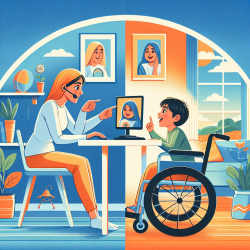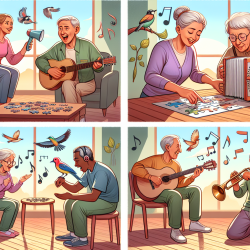Atopic dermatitis (AD) affects 15-30% of children worldwide, imposing significant psychosocial burdens. Recent research by Xie and colleagues (2023) in Hong Kong, published in *Children (Basel)*, highlights the efficacy of an integrative body–mind–spirit (IBMS) intervention in improving the subjective experiences of children with AD. This blog will explore how practitioners can enhance their skills by incorporating the outcomes of this study into their practices.
Key Findings from the Study
The study utilized a drawing-based, qualitative approach to gather insights from 13 children (aged 8-12) diagnosed with moderate or severe AD. The intervention included six weekly sessions focusing on self-identity, disease identity, emotional expression, resilience, personal strengths, and support networks. Thematic analysis revealed significant improvements in the children’s cognitive, behavioral, and environmental experiences.
Cognitive Improvements
Children’s perceptions of AD and its treatments evolved positively. Initially, AD was seen as an overwhelmingly negative force. Post-intervention, many children began to view AD with a more balanced perspective, recognizing both challenges and opportunities for personal growth.
Behavioral Enhancements
The intervention equipped children with new coping strategies for managing itching, emotional stress, and bullying. Techniques such as mindfulness breathing and creative distractions were particularly effective. These strategies empowered children to handle their symptoms more proactively, improving their overall quality of life.
Environmental Benefits
Parent-child interactions and peer relationships also improved. Joint activities in the sessions fostered stronger bonds and mutual understanding between parents and children. Additionally, the group format provided a supportive environment where children could form new friendships and feel less isolated.
Practical Applications for Practitioners
Practitioners can integrate these findings into their own therapeutic practices to better support children with AD. Here are some actionable steps:
- Incorporate Cognitive Reframing: Help children reframe their perceptions of AD by focusing on both positive and negative aspects. This balanced view can reduce anxiety and improve self-acceptance.
- Teach Coping Strategies: Introduce mindfulness techniques and creative distractions to help children manage itching and emotional stress effectively.
- Facilitate Parent-Child Activities: Encourage joint activities that foster communication and understanding between parents and children, strengthening their relationship.
- Create Supportive Group Settings: Organize group sessions where children can interact with peers facing similar challenges, reducing feelings of isolation and fostering a sense of community.
Encouraging Further Research
While the IBMS intervention showed promising results, further research is needed to generalize these findings to broader populations. Practitioners are encouraged to participate in or conduct studies that explore the long-term effects of psychosocial interventions on children with AD.To read the original research paper, please follow this link:
Effects of a Psychosocial Intervention on the Subjective Experiences of Children Living with Atopic Dermatitis: A Qualitative Study in Hong Kong †.










